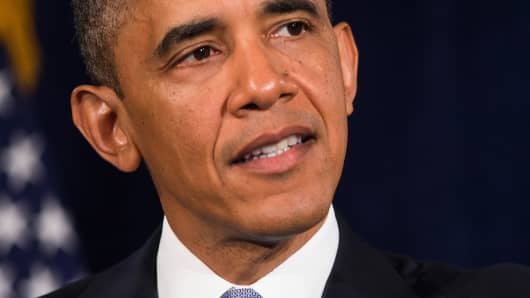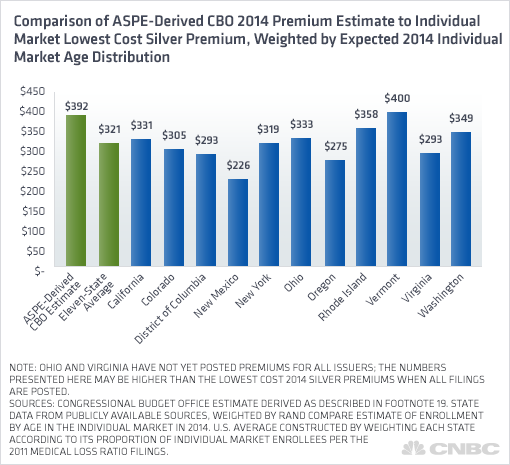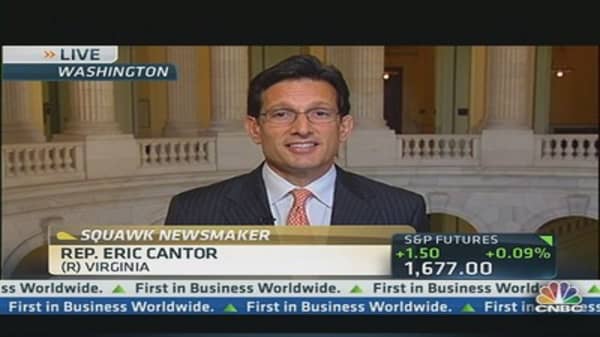President Barack Obama on Thursday highlighted tangible cost savings being delivered by his signature health-care reform law, arguing that putting extra dollars in middle-class peoples' pockets trumps continued efforts by Republicans to repeal or cripple Obamacare.
"The law is working the way it's supposed to do for middle-class Americans," Obama said in a White House speech where he was flanked by handful of the 8.5 million Americans who this summer are receiving rebates averaging about $100 as a result of the Affordable Care Act.
The new law's rules mandate that insurers either spend at least 80 percent of their premium dollars on health care instead of on overhead, or rebate some of those premiums.
Obama also cited a $3.4 billion reduction in insurance premiums for nearly 78 million consumers in 2012, as well as a significant reduction in the estimates of insurance premiums in the individual plans being offered by 11 new state health care exchanges this fall as evidence the law is delivering "more choices, better benefits, a check on rising costs."
And the president pointed to slowing health-care inflation this year as proof that Obamacare is working as intended.
"Health-care costs aren't skyrocketing because of the Affordable Care Act," he said. "And yet they're waging these old battles," Obama said to laughter from his audience, noting that the day before House Republicans voted for the 38th and 39th respectively to delay key insurance coverage requirements for individuals and businesses.
(Read more: House Republicans vote to delay Obamacare mandates)
"Sometimes I just try to figure out why," Obama said. "Maybe they just they just think it's good politics. But part of your job here is not to think about politics.
"What I've heard is just the same old song and dance. And we're going to blow through that stuff."






